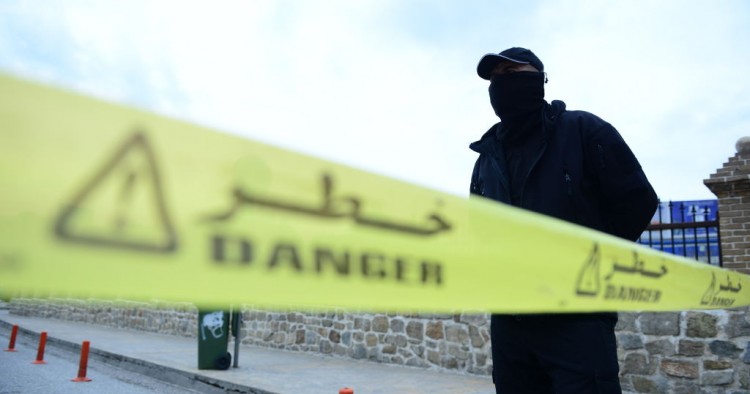Amid a worsening COVID-19 crisis with which the country’s financial and health sectors are poorly equipped to deal, Iraqi political elites are edging closer to agreeing on a new prime minister-designate. Adnan al-Zurfi, the current designate, has until April 17 to form a cabinet, but his chances of doing so are dwindling by the day. Pro-Iran Iraqi parties see al-Zurfi as too pro-U.S. and anti-PMF. Three Shi’a-majority parties including Fatah, Hikma, and State of Law issued a statement nominating Mustafa al-Kadhimi, the director of the National Intelligence Service, for the position. His candidacy is not expected to be blocked by the two main Kurdish parties and will be received rather positively by the majority of the Arab Sunni political establishment.
The political jockeying is taking place amid increasing tensions between the U.S. and pro-Iran Iraqi militias and signs of growing fragmentation within the militia scene. Yesterday, at least three rockets landed near the site of Halliburton, a U.S. oilfield services company, close to al-Zubair in Basra, resulting in “minor material damage.” While there were no U.S. employees on site, this attack is the latest in a series targeting military bases housing U.S. and coalition troops and the U.S. embassy in Baghdad’s Green Zone. No group has yet claimed responsibility for yesterday’s attack. However, the pro-Iran Fatah coalition issued a statement denouncing it, saying such attacks cause severe damage to the Iraqi economy and calling on Iraqi security services to take the necessary measures to protect these companies.
On April 1, U.S. President Donald Trump tweeted a warning to Iran and its proxies that they would pay a heavy price if U.S. troops and/or assets in Iraq were attacked. The U.S. military has been redeploying forces inside and outside Iraq, partly signaling its intention to reduce its military footprint in the country. Diplomatically, the Iraqi Ministry of Foreign Affairs announced it received a letter from its American counterpart suggesting the two countries start new negotiations on the basis of the existing Strategic Framework Agreement over future economic, cultural, trade, and security bilateral and regional relations. The military and diplomatic moves are meant to counter an aggressive push by Tehran through its Iraqi political and militia proxies to pressure the Iraqi government and political elites to act in accordance with the Jan. 5 parliamentary vote to oust U.S. forces from Iraq.
The different scenes in Baghdad — of ruling elites hunkering down in their vast compounds lost in their jockeying and scheming over candidates for the position of prime minister, of a militia space that is fragmenting with different groups outbidding each other over their loyalty to Iran and their ability to target the U.S. presence in the country, and of a citizenry that is facing the twin disasters of a coronavirus pandemic and an economic collapse — tell the tale of a future that will, at the very least, present serious challenges on the social, economic and political fronts, and at the worst could become chronically violent.
Randa Slim is a Senior Fellow and the Director of MEI’s Conflict Resolution and Track II Dialogues Program.
Photo by Fariq Faraj Mahmood/Anadolu Agency via Getty Images
The Middle East Institute (MEI) is an independent, non-partisan, non-for-profit, educational organization. It does not engage in advocacy and its scholars’ opinions are their own. MEI welcomes financial donations, but retains sole editorial control over its work and its publications reflect only the authors’ views. For a listing of MEI donors, please click here.













